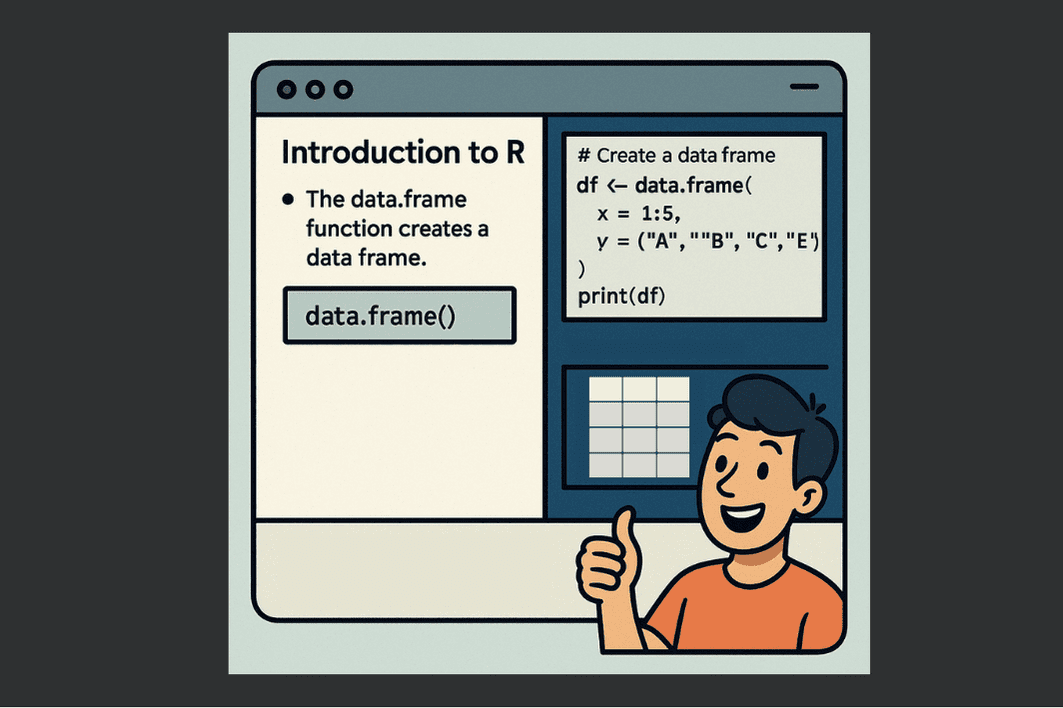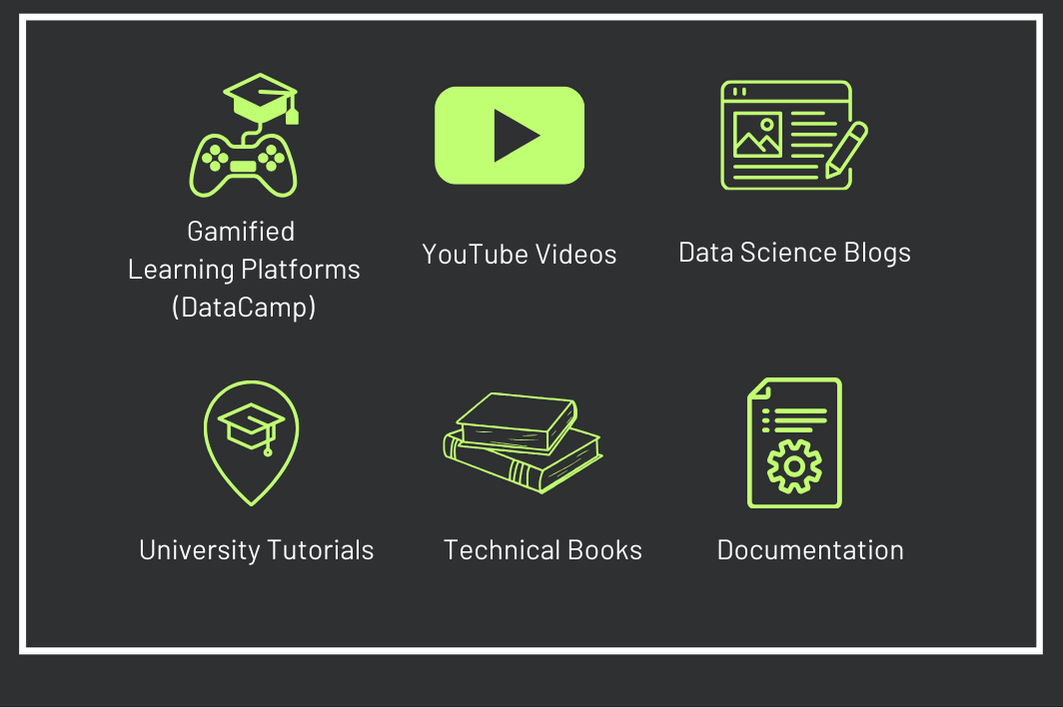My Journey Learning R as a Humanities Undergrad
What you will learn
- Learn about the main challenges in learning R.
- Discover good paid and free resources for your learning journey.
Table of Contents
- 1. A Passion for the Past
- 2. First Encounters with R
- 3. Discovering DataCamp
- 4. Building Confidence and Choosing Policy Analysis
- 5. Pandemic Pivot
- 6. Thesis & Beyond
- 7. AI as a resource to learn programming
- Key Takeaways
- Ready to Start Your Own Journey?
1. A Passion for the Past
Since I was a teenager, History has been one of my passions. I was very lucky in high school to have a great History teacher whom I could listen to for hours. My interest was, of course, driven by curiosity about all those dead humans in historical plots that exist no more except in books, images, movies, and — mostly — in our imagination.
However, what really triggered my passion was realizing how different texts can describe the same event from such varied perspectives. We are able to see the same realities in different ways, which gives us the power to shape our lives — and our future — into something more meaningful, if we so choose.
2. First Encounters with R
When I began my master’s in public policy at the Hertie School in Berlin, Statistics I was a mandatory course for both management and policy analysis, the two areas of concentration offered in the course. I began the semester certain I would choose management because I’d always struggled with mathematical abstractions. However, as the first semester passed, I became intrigued by some of the concepts we were learning in Statistics I. Internal and external validity, selection bias, and regression to the mean were concepts that truly captured my interest and have applications far beyond statistics, reaching into many areas of research.
 The Hertie School Building. Source: Zugzwang1972, CC BY 3.0, via Wikimedia Commons
The Hertie School Building. Source: Zugzwang1972, CC BY 3.0, via Wikimedia Commons
Then came our first R programming assignments. I struggled endlessly with function syntax and felt frustrated by every error — especially since I needed strong grades to pass Statistics I. Yet each failure also felt like a challenge I couldn’t put down. I missed RStudio’s help features and wasted time searching the web for solutions, but slowly the pieces began to click.
3. Discovering DataCamp
By semester’s end, I was eager to dive deeper. That’s when I discovered that as Master candidates, we had free access to DataCamp — a platform that combines short, focused videos with in-browser coding exercises, no software installation required. The instant feedback loop—seeing my ggplot chart render in seconds—gave me a small win every day. Over a few months, I completed courses from Introduction to R and ggplot2 to more advanced statistical topics. DataCamp’s structured approach transformed my frustration into momentum. Introduction to Statistics in R was one of my first courses and helped me pass Stats I with a better grade. You can test the first chapter for free to see if it matches your learning style.
 DataCamp Method. Source: AI Generated.
DataCamp Method. Source: AI Generated.
4. Building Confidence and Choosing Policy Analysis
Armed with new R skills, I chose policy analysis for my concentration area—and I’ve never looked back. Learning to program in R created a positive feedback loop for my statistical learning, as visualizations and simulations gave life to abstract concepts I once found very difficult to understand.
5. Pandemic Pivot
Then the pandemic of 2020 hit, which in some ways only fueled my R learning since we could do little besides stay home at our computers. Unfortunately, my institution stopped providing us with free DataCamp accounts, but I continued to learn R programming and discovered Stack Overflow — a platform of questions and answers for R and Python, among other languages — to debug my code.
I also began reading more of the official documentation for functions and packages, which was not as pleasant or easy as watching DataCamp videos, which summarized everything for me. As I advanced, I had to become more patient and persevere to understand the packages and functions I needed. I also turned to books—mostly from O’Reilly Media, a publisher with extensive programming resources. There are also many free and great online books, such as R for Data Science.
 Main Resources Used to Learn R. Source: Author.
Main Resources Used to Learn R. Source: Author.
6. Thesis & Beyond
In 2021, I completed my master’s degree with a thesis evaluating educational policies in Brazil. To perform this analysis, I used the synthetic control method—implemented via an R package. If you’re interested, you can read my thesis here: Better Incentives, Better Marks: A Synthetic Control Evaluation of Educational Policies in Ceará, Brazil. My thesis is also an example of how you can learn R by working on a project with goals and final results. It also introduced me to Git and GitHub, a well known system for controling the versions of your coding projects and a nice tool to showcase your coding skills.
7. AI as a resource to learn programming
Although AI wasn’t part of my initial learning journey, I shouldn’t overlook its growing influence on programming in recent years. I wouldn’t recommend relying on AI for your very first steps in R, but it can be a valuable tool when you’ve tried to accomplish something and remain stuck. Include the error message you’re encountering in your prompt, or ask AI to explain the code line by line if you’re unsure what it does. However, avoid asking AI to write entire programs or scripts for you, as this will limit your learning and you may be surprised by errors. Use AI to assist you, but always review its suggestions and retain final control over your code.
Key Takeaways
- Learning R as a humanities major can be daunting, but persistence pays off.
- Embrace small, consistent wins — DataCamp’s bite‑sized exercises are perfect for that.
- Visualizations unlock understanding — seeing data come to life cements concepts.
- Phase in documentation and books when you need to tackle more advanced topics.
- Use AI to debug your code and explain what the code of other programmers does.
- Join the community — Stack Overflow, GitHub, online books and peer groups bridge gaps when videos aren’t enough.
Ready to Start Your Own Journey?
If you’re also beginning or if you want to deepen your R skills, DataCamp is a pleasant and productive way to get going. Using my discounted link below supports Coding the Past and helps me keep fresh content coming on my blog:
Start Learning R on DataCamp with My Discounted Link
What was the biggest challenge you faced learning R? Share your story in the comments below!
Comments
There are currently no comments on this article, be the first to add one below
Add a Comment
If you are looking for a response to your comment, either leave your email address or check back on this page periodically.